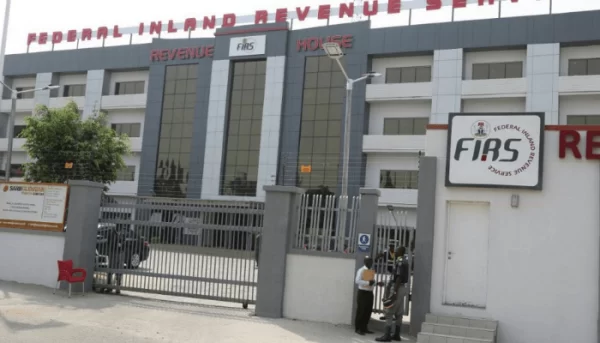
FIRS and its quest to change Nigeria’s tax environment.
At the end of the recent second National Tax Dialogue, the Federal Inland Revenue Service (FIRS), led by its chairman Mohammad Nami, shared some understanding and narratives required for improving the tax environment and the growth of taxation in Nigeria. It comes from the background of Covid – 19 pandemic and its implications for growth, recent annual finance bills of the government, the highest taxation level in 2021, and the recent collapse in oil revenues contributions to government fiscal resources.
In 2020, the coronavirus took the world by surprise as economies across the globe were battered and most countries suffered fiscal shocks. Nigeria, like other economies, witnessed the woes of the pandemic as government incomes dwindled, job losses spiralled out of control and the burden to seek revenue introduced a new level of desperation that created the mindset of ‘get money wherever it can be found.’ The responsibility to generate revenue regardless of the economic situation of the country rested on the shoulders of the FIRS, and so far, they have delivered and are still delivering.
Despite the fiscal chaos, the FIRS was able to meet 98 percent of the national tax target for that year. The service had collected total tax revenue of over N4.952 trillion, a little short of the target of N5.07 trillion the government had set for it. This near 100 percent feat was phenomenal as it coincided with the period when the pandemic had shrunk business activities, lockdowns had frustrated commerce, and tax exemptions had been given to small companies and the FIRS, to cushion the effects of the pandemic, had granted tax waivers.
The year 2021 on the other hand came with its unique set of challenges. Notwithstanding the global and economic challenges that accompanied the year, the FIRS, in a record breaking performance, met and surpassed its revenue target with N6.405 trillion, indicating an over 100 percent of the service revenue target, the highest in the Service’s history. The performance rests on the improvement in the oil price, which reflected on the oil revenue. The target for the oil revenue in 2021 stood at N1.636 trillion and the Service collected N2.008 trillion, indicating a 22 percent above the target.
Mohammed Nami, the executive chairman, FIRS, stated that the survival of the nation in the face of these unprecedented crises was dependent on tax revenue as he highlighted the revenue profile of the country in 2021.’ He also indicated that the FIRS had contributed over 59.45 percent of the revenue shared by the Federal Account Allocation Committee (FAAC) monthly all through 2021. He spoke this at the 2nd Annual National Tax Dialogue, held on March 29, 2022.
For a better understanding of FIRS performance over the years, let us take a cursory look at the tax revenue since 2011. The data below shows the tax annual collection and the target.
Fig 1: Nigeria tax revenue and GDP growth 2011-2021
First, the data showed that 2021 was the only year in recent time where FIRS was able to meet the set target. The data also exposed the inability of the FIRS to meet up with the target since 2015 when the oil price declined. During this period, the oil price almost halved to $52.32 per barrel from $98.97 in 2014. The revenue for this period was N4.57 trillion (12% increase from 2014) and the actual collection rested at N3.74 trillion, indicating that the service could meet 82% collection of its target, this was the first time FIRS was unable to meet its target since 2011. Thus, this trend, not hitting the target, continued until 2020. Although in 2021, the service was able to bounce back in meeting the revenue target after setting a realistic target of N6.4 trillion. The collection for 2021 stood at N6.403 trillion, slightly above the target mark. The thrilling aspect of the achievement lies in the fact that almost 70 percent of the collection came from non-oil sources.
Second, although the Federal Inland revenue is worth the applause, however, more people, companies are not captured in the tax net. The OECD data stated that Nigeria’s tax-to-GDP ratio stood at 6.3%, significantly lower than the 16.5% average for 30 African countries. This shows that a productive economy like Nigeria is only generating little revenue from the tax and it is obvious that much needs to be done in the area of tax revenue mobilisation. Put in proper perspective, the FIRS boss, Nami stated that, in the second quarter of 2019, the FIRS had only 20 million taxpayers, leaving at least 49 million people said to be avoiding paying tax.
The FIRS chairman, while speaking at a virtual meeting on the review of a ‘Report on Illicit Financial Flows (IFFs) concerning Tax’ organized by the Independent Corrupt Practices and Other Related Offences Commission (ICPC) in March 2021 stated that 6,722 companies, partnerships and enterprises with a banking turnover of N1 billion were not paying taxes as of May 2018. He reiterated further that for companies with a banking turnover of between N100 million and N999 million, tax compliance of above 56 per cent was recorded and 45,283 companies not paying full taxes were discovered. This conclusively means that FIRS could double the current tax revenue if the tax base is widened. As stated at the 2022 National Tax Dialogue, Nigeria can grow tax revenue without necessarily raising new taxes considering the volatility of revenue from commodities. This means that coordination between the government at all levels and the federal Inland Revenue service is critical in expanding the tax base. Also in achieving this, Nigerian tax authorities must use data to track all economic activities and identify all taxable persons.
Further, the government should create a relevant policy and statutory framework for a centralized data sourcing, warehousing, analysis and retrieval system that every tax authority can plug into.
Third, a sequel to its inability to generate enough means tax revenue is gradually losing its power in finance government expenditure. Take a cursory look at fig 2 showing the government’s actual expenditure and the tax revenue for the period 2015 until 2022. The data show that the tax revenue between 2020 and 2022 could only cater for an average of 55% of the government expenditure. This indicates that the government looked elsewhere other than the FIRS to finance its spending, most of the time, it is done through borrowing. Due to this inability of the FIRS to generate the required revenue, the government debt has grown significantly from $56.65 billion in 2015 to $95.78 billion in 2021, of which about 41 percent is external debt.
Fig 2: Nigeria government expenditure and Tax revenue 2015-2022
In 2022, the federal government sets a N7 trillion target for The FIRS, however, the Service wants to collect N10 trillion surpassing the government’s target. Corroborating the FIRS boss, this target could be achieved in three ways. First, with the new power vested on the FIRS the sanctioning of non-compliant taxpayers that refuses access to its information technology (IT) systems for which the FIRS may deploy both proprietary and third-party technology applications to collect information from taxpayers. If the FIRS could use this, the tax evaders will be minimised and the tax net widened.
Second, the FIRS is now empowered to assess non-resident from tax on fair and reasonable turnover tax basis, on turnover earned from providing digital services to Nigerian customers, and introduce turnover tax on fair and reasonable percentage of profits earned from providing digital services to Nigerian customers.
Third, the FIRS will start collecting taxes on income derived by companies from bonds and short-term securities. In 2012, the federal government had exempted bonds and short-term government securities from income tax for 10 years. With the expiration, companies will now pay taxes on profits from loans to their government from January 2, 2022.
Fourth, companies deriving income from Nigeria without physical presence will now be assessed, like other companies with physical presence, on a fair and reasonable percentage of their turnover in line with Section 30 of CITA. These companies will start remitting the appropriate taxes to the Service.
In conclusion, both oil and non-oil revenue for 2022 is expected to grow tremendously resting on two things; with the new power vested on the FIRS to collect certain taxes, and also the improvement in the oil revenue. This will help in closing the gap between government expenditure and revenue.












